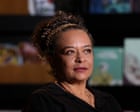
In a world of diverse cultures and communities, recent events highlight both the strides made towards progress and the challenges that persist. From historic achievements in Brazil’s literary circles to societal reflections within London’s police force, these moments of change and recognition prompt a collective encouragement towards a more inclusive future.
In Brazil, the election of Ana Maria Gonçalves to the Brazilian Academy of Letters marks an unprecedented moment. Founded in 1897, this esteemed institution, traditionally dominated by white males, now welcomes its first Black female author. Gonçalves, celebrated for her work “Um defeito de cor,” provides a profound voice representing diversity in literature. Her election has been met with widespread acclaim from writers, activists, and even Brazilian President Luiz Inácio Lula da Silva, signaling a positive step towards inclusivity in cultural arts.
In another part of the world, a different narrative unfolds. The family of Maha Almassri, a Palestinian grandmother detained in Sydney, is calling for understanding and compassion. Following her arrival from Gaza in 2024 on a visitor visa, Almassri’s subsequent detention after applying for a protection visa has drawn the attention of both her family and the community. They are appealing to the authorities for clarity and fairness in her case, hoping that a sense of justice and kindness prevails in times of need.
Meanwhile, in Bangladesh, a change towards recognizing true titles is underway. The interim administration, led by Nobel laureate Muhammad Yunus, has abolished the outdated protocol of addressing female officials as “sir.” This decision reflects a conscious effort to respect gender identity, moving away from former practices implemented during Sheikh Hasina’s leadership. The shift represents a broader narrative of progress in acknowledging and valuing individual identity and dignity in professional spaces.
In London, the head of the Metropolitan Police, Sir Mark Rowley, addresses the pressing issue of racial disparity in crime statistics. During an appearance on Sky News, he described the increased likelihood of black boys in London dying before 18 compared to their white counterparts as “shameful.” His remarks highlight ongoing efforts to improve policing and bridge gaps in community relations, acknowledging past mistakes and striving for a more balanced and just approach moving forward.
Lastly, the Windrush Untold Stories exhibition in Brixton stands resilient in the face of adversity. Following acts of vandalism, global support surged to restore the artworks commemorating the Caribbean immigrants who enriched British society postwar. The exhibition is not only a tribute but serves as a powerful reminder of the strength and perseverance of the Windrush generation and the communities they continue to inspire.
These narratives, despite their varied contexts and locations, share a common thread – a commitment to enhancing understanding, embracing diversity, and recognizing the need for ongoing growth and reflection in our societies. As we celebrate milestones and learn from challenges, we edge closer to a world where every story is valued, and every voice is heard.
Source: {link}
